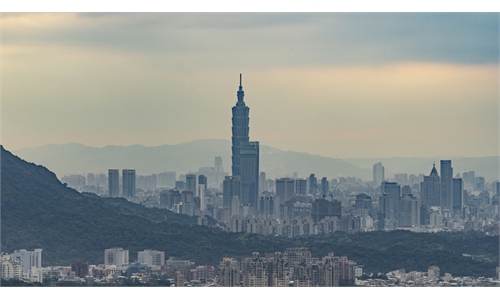Philippine side should reflect on its own actions when it comes to possible environmental problems in Zhongye Dao: Chinese FM

Chinese Foreign Ministry spokesperson Wang Wenbin Photo: fmprc.gov.cn
The Philippine side should most certainly reflect on its own actions for the potential environmental problems around Nansha Qundao (also known as Nansha Islands), over which China holds an indisputable sovereignty including Zhongye Dao (also known as Zhongye Island), instead of blaming the Chinese side for no reason, Chinese Foreign Ministry spokesperson Wang Wenbin said on Monday.
Wang's comments came in response to remarks made the same day by a Philippine official who said the Philippine government sees the need to file a lawsuit against China for its destruction of coral reefs in the South China Sea, including fishing.
Wang also said that he had noted the Philippine side's allegations that the serious degradation of a large number of coral reefs near Zhongye Dao was due to man-made destruction, and wrongly claimed that China is suspected of causing the damage.
He stressed that China has indisputable sovereignty over the Nansha Qundao and their adjacent waters, including the Zhongye Dao, but the Philippine side has illegally occupied China's Zhongye Dao and has frequently carried out activities in the waters around the island.
According to previous reports, the Global Times revealed that illegal fishing acts are evident in seafood markets across the Philippines, allowed by those people who smear China of illegally harvesting fish and sea life. Despite existing laws against these illegal and destructive fishing practices, the lack of effective regulation still fuels the continuation of these practices in the Philippines.
According to another set of images exclusively obtained by the Global Times from the China Coast Guard (CCG), the hull and interior of the illegally grounded Philippines' warship at Ren'ai Jiao (also known as Ren'ai Reef) are severely corroded, and experts have warned that the illegally grounded warship could cause irreversible and lasting damage to marine life in the South China Sea.
The implementation of CCG procedural regulations aims to standardize the administrative law enforcement procedures of coast guard agencies, better maintain maritime order, and is in line with internationally accepted practices, Wang said when asked to comment remarks by a Philippine official saying that China has no rights on the high seas and that the regulations violate international law.
Wang also added that individuals and entities concerned have no cause for concern in the absence of wrongdoing.
Global Times

